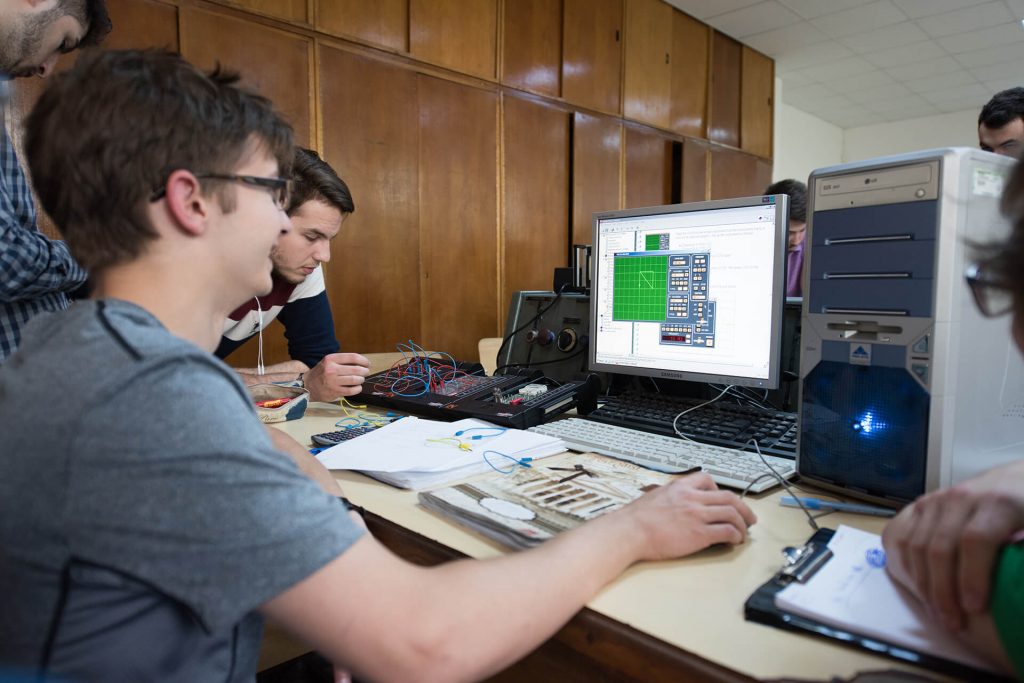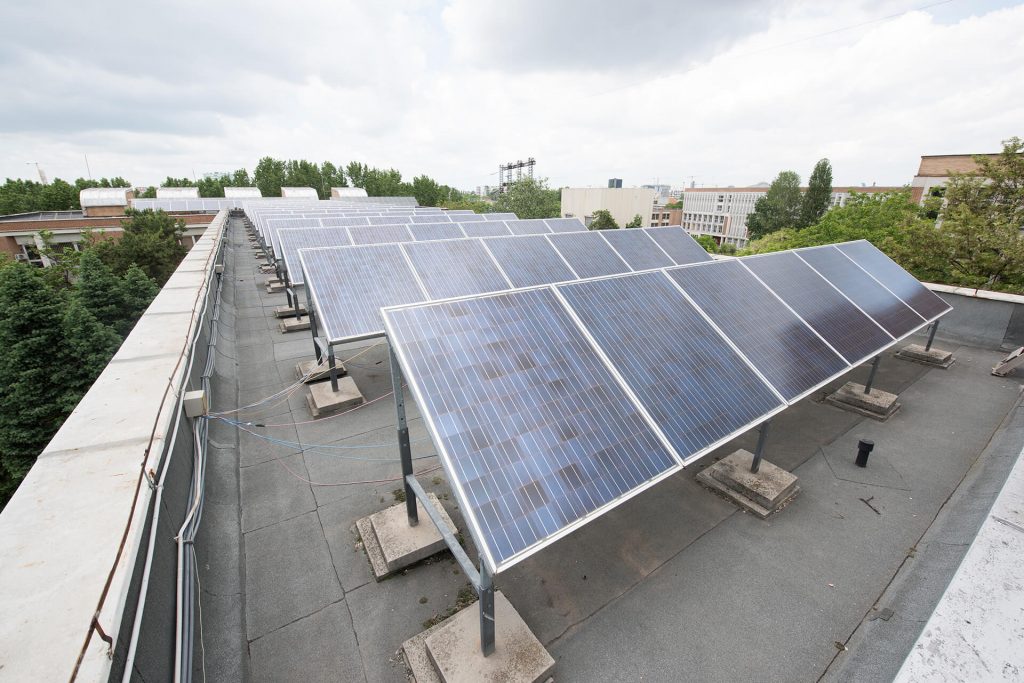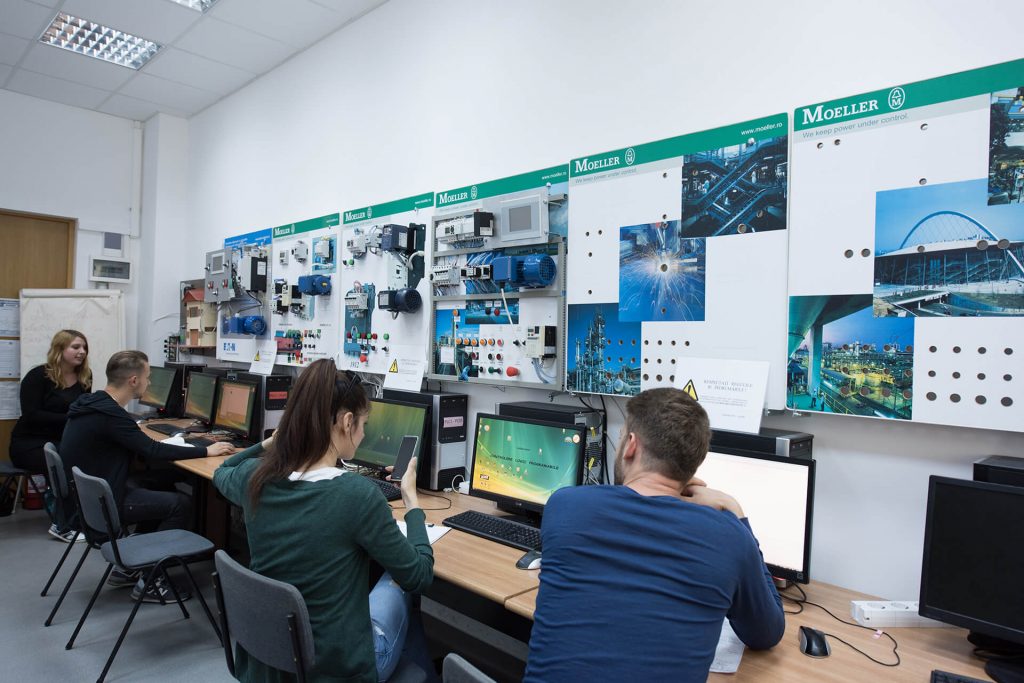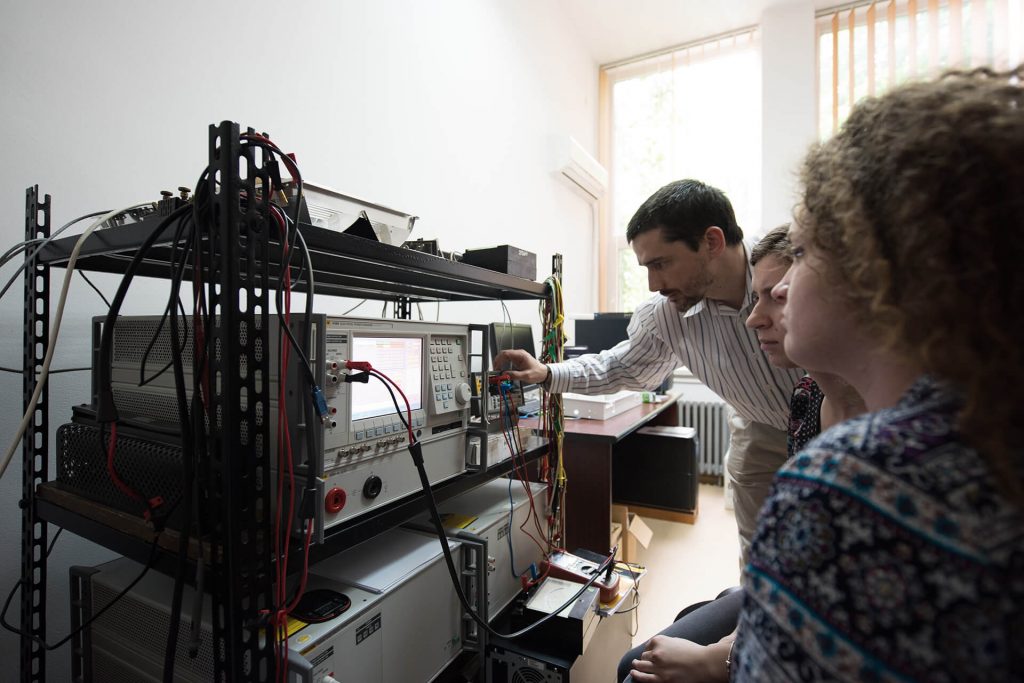Vice-Dean : prof. dr. ing. Lucian – Gabriel PETRESCU
Vice-Dean : ș.l. dr. ing. Alin – Alexandru DOBRE
Vice-Dean : ș.l. dr.ing. Alexandra – Cătălina LĂZĂROIU

 Facultatea de Inginerie Electrică
Facultatea de Inginerie Electrică Facultatea de Inginerie Industrială și Robotică
Facultatea de Inginerie Industrială și Robotică Facultatea de Inginerie în Limbi Străine
Facultatea de Inginerie în Limbi Străine
 Facultatea de Inginerie Electrică
Facultatea de Inginerie Electrică Facultatea de Inginerie Industrială și Robotică
Facultatea de Inginerie Industrială și Robotică Facultatea de Inginerie în Limbi Străine
Facultatea de Inginerie în Limbi Străine
Department of Measurements, Electrical Devices and Static Converters
Director de departament
Prof. Habil. Ph.D. Eng. SĂRĂCIN Cristina
Telefon: +4021-402 96 63
Department of Electrotechnics
Director de departament
Department Director: Assoc. Prof. Ph.D. Eng. MARICARU Mihai
Telefon: +4021-402 91 44
Department of Electrical Machines, Materials and Drives
Director de departament
Prof. Ph.D. Eng. MELCESCU Leonard
Telefon: +4021-402 91 25
Adresă
Splaiul Independentei 313, sector 6, Bucuresti, cod 060042, corp EA 123
Telefon / Fax
Tel Secretariat: + 40-21-402 9149
Tel Decan: + 40 21-402 95 57
Fax: + 40 21-318 10 16
Email
inginerie.electrica@upb.ro
Website
www.electro.upb.ro
Programele de studii universitare de masterat




The history of the Faculty of Electrical Engineering begins when a school of electricians was founded in 1913. This later became the Institute of Electrotechnics within the University of Bucharest. In 1921 King Ferdinand issues the law setting up the Polytechnic School of Bucharest, which consisted in 4 departments. Among these departments there was also the Electromechanical department. The reform of education introduced in 1948 changed the name of Polytechnics School into the Polytechnics Institute of Bucharest, which included the Faculty of Electrotechnics, later to give birth to the faculties of Electronics, Automatic Control and Power Engineering.
At the beginning of the university year 2005-2006, the name of the faculty became Electrical Engineering. The Faculty of Electrical Engineering is affiliated to the Romanian Consortium of the Faculties of Electrotechnics – a national academic network for all the 17 faculties sharing an electrical profile.
The Faculty of Electrical Engineering provides its graduates with the theoretical and practical competences in the field of electrical engineering, by means of developing the technical and informatic skills in view of research, design and development of dedicated software.
Its mission consists in training specialists in acquiring high skills and competences in the field of electrical engineering and other related fields in three stages: bachelor’s degree, master’s degree and doctoral degree, as well as in conducting theoretical and applied research at the highest level.
The Faculty of Electrical Engineering, with its study programs, meets the necessities of the labour market in our country as well as the overall evolution of this market. The faculty’s assets are: a complex curriculum for the undergraduate studies, in-depth master programmes, highly competitive professors, basic and applied scientific research at the highest level, modern facilities, incorporating education and research into the European area.
The faculty has important facilities mainly acquired by means of European programmes, national research programmes and grants, as well as from investment funds from the state budget. Thus, the faculty has competitive laboratories where the activity is carried out for all the 44 subjects involving laboratory work and research work.
The 30 KWp photovoltaic power station is an important achievement, being the largest in the South-East of Europe.
Within the three chairs teaching is carried out in laboratories equipped with computers, electrical and electronic devices, data acquisition devices, which helps the students to build modern and up-to-date knowledge. The most representative laboratories for the faculty are: Electrotechnics, Numerical methods, Electrical measurements, electrotechnical materials, static power converters, electrical equipment, electric drives, Electrical Engineering for Medicine, Applied Informatics, electromagnetic compatibility, Electrical devices and equipment.
During the informatics laboratories the students have the opportunity to learn different programming languages: C++, LabVIEW, TESTPOINT and to learn about and use software platforms such as MATLAB, COMSOL, SIMULINK, PSIM, EDSA FLUX 3D, FIDAP+GAMBIT, INFOLYTICA 3D.
The faculty also has its own libraries, with an important number of books – over 7,000 books, the oldest from 1948 – and over 20,000 special magazines which help the students to learn independently.